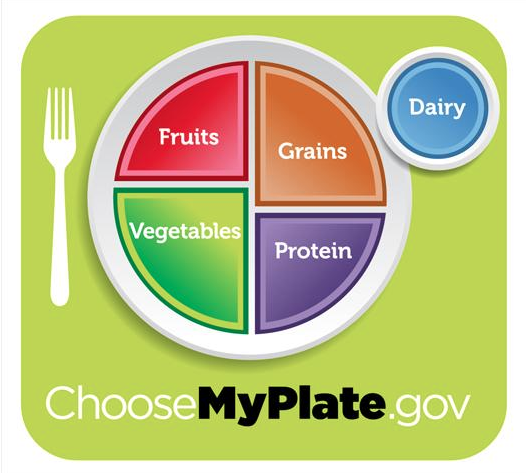Back in June, officials in the Department of Agriculture with the backing of Michelle Obama spent millions of dollars to switch from the food pyramid to the food plate.
Well, Michelle Obama and the US Department of Agriculture decided that the government's visualization of what they think your diet should be wasn't working well enough. Americans are still too fat! So we get a new multi-million dollar campaign to show you the proper way to eat! Presenting...
That's right! Myplate.gov! If you don't understand it, or what it's supposed to do, don't worry. The government bureaucrats do. They know better than you what food is good for you. And the result is this hideous monstrosity.
It's not a terrible thing that there are official guidelines for a "healthy diet." The problem, however is when these government "nudges" don't work, the government increasingly turns to force. For example, despite many government "guidelines," Americans still consume a lot of salt. Therefore, the FDA is now considering stricter regulation of salt.
Now, the FDA wants to revamp the old food label system:
A proposal is in the works to change several parts of the label, including more accurate serving sizes, a greater emphasis on calories and a diminished role in the daily percent values for substances like fat, sodium and carbohydrates.
It's the latest attempt to improve the way Americans view food and make choices about what they eat, and comes in the wake of major advances in nutrition regulations by the Obama administration.
Calorie counts are popping up on menus of chain restaurants across the country and the longstanding food pyramid was toppled this year by the U.S. government in favor of a plate that gives a picture of what a healthy daily diet looks like.
The struggle to redesign the labels on every box, can and carton has been in the works since 2003, and some of the changes could be proposed as soon as this year.
"There's no question obesity is a central public health concern that the nutrition facts panel can play a role in. It's obviously not a magic wand but it can be an informative tool," said FDA Deputy Commissioner Michael Taylor.
Recommended
Yes, obesity is a problem in America, but government mandates and fancy new labels aren't going to change eating habits. Personal responsibility is the only thing that will keep people healthy and spending millions of dollars in a time when the U.S. debt is a whopping $14.5 trillion on revamping the food label system because the current labels are "too confusing," is ridiculous. Not to mention the move will cost businesses money, just like the requirement to post calorie count at restaurants has, which is just another regulatory burden those businesses will have to shoulder in a harsh and stagnant economic environment.



